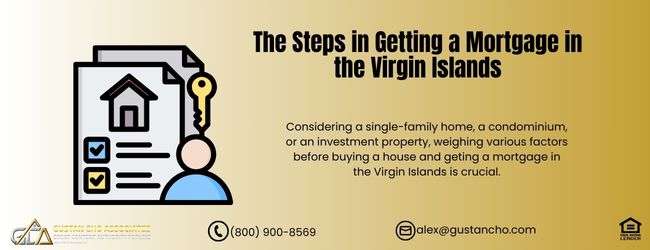Preparing For a Mortgage For First-Time Homebuyers

This guide covers preparing for a mortgage for first-time homebuyers. Once you have made the decision to purchase a home, the next step is to get pre-approved. Preparing for a mortgage is key for homebuyers. The first step in preparing for a mortgage for first-time homebuyers is to educate yourself on the various loan programs. FHA and Conventional loans are the top two most popular loan program.
Down payment assistance programs for first-time homebuyers can significantly reduce the upfront costs of buying a home. These programs vary widely by location and have specific eligibility criteria, but here are some common types you might encounter.
State or local governments typically provide grants that do not need to be repaid. Grants are often aimed at low- to moderate-income buyers and may have requirements about the type of property you can buy. Some programs offer secondary loans at low interest rates to cover down payment and closing costs. These loans may only require payments once the home is sold, refinanced, or paid off.
Down Payment Assistance Mortgage For First-Time Homebuyers
A first-time homebuyer is a homebuyer who did not have ownership on a home in the past three years. There are many down payment assistance mortgage for first-time homebuyers. Every first-time homebuyer down payment assistance program has different lender overlays.
There are forgivable and non-forgiveable down payment assistance programs. The down payment assistance is forgiven on forgiveable down payment assistance programs,
Forgiveable down payment assistance mortgage for first-time homebuyers loans can be forgiven over a set number of years, meaning you won’t have to pay them back if you live in the home for the duration of the term defined by the program. Non-forgivable down payment assistance programs are second mortgage loans that can be charged interest and needs to be paid back when you refinance or sell your home. Click here to qualify for mortgage loan for First-Time Homebuyer
Matched Savings Programs
These programs match a homebuyer’s savings towards a down payment, often up to a certain percentage or dollar amount. Eligibility for these programs can depend on factors such as income level, the property’s location, first-time homebuyer status, and sometimes the buyer’s profession (like teachers, firefighters, etc.). It’s also common for participants to be required to attend a homebuyer education course. To find a program that fits your needs, check with your local housing authority, state housing finance agency, or a nonprofit housing organization. They can provide information about what’s available in your area and help guide you through the application process.
Preparing For a Mortgage For First-Time Homebuyers Without Stress
Preparing for a mortgage for first-time homebuyers will reduce stress during the mortgage process and can save you money by getting a lower mortgage rate. Two of the most important factors in Preparing For A Mortgage For First-Time Homebuyers is to maximize credit and make sure your debt to income ratios are in line with agency guidelines.
Preparing For a Mortgage For First-Time Homebuyers By Maximizing Credit Scores
The minimum credit score to qualify for a 3.5% down payment FHA Loan is 580 FICO. HUD, the parent of FHA, allow borrowers with under 580 credit scores down to 500 FICO to qualify for FHA Loans. However, any borrowers with under 580 credit scores need 10% versus 3.5% down payment.
How Lenders Use Credit Scores
Credit Scores are used for two purposes: Meet the minimum credit score requirements and pricing on mortgage rates. The lower the credit scores, the higher the mortgage rates. Lenders consider lower credit score borrowers as high risk. With high risk comes higher rewards. Lenders reward themselves with higher rates on borrowers with lower credit scores.
How Much House Can I Afford With The Ability to Repay
One of the most important factors to consider when preparing for a mortgage is how much house can you afford versus qualify. Lenders do not take monthly debts that do not report on the credit bureaus into account when underwriting borrowers. The following factors are not calculated by mortgage underwriters:
- Child and elderly care expenses
- Utilities such as electric, gas, water, scavenger
- Personal expenses such as cell phone, cable, internet
- Cigarettes and alcohol expenses
- Fuel and Travel
- Auto expenses and insurance
- Health and other insurance expenses with the exception of homeowners insurance
- Vacation
- Education
- Dining and groceries
- Pet expenses
- Clothing and dry cleaning expenses
- Maintenance and Repairs
- Landscaping and Snowplowing
- Tollway expenses
Each family has its own type of lifestyle. Therefore, everyone has its own budget for their personal expenses. Click here to qualify for a loan in affordable price
Avoid Buying Too Much House
How much you qualify by a lender does not necessarily mean how much you can afford. Go over your monthly expenses along with your new proposed housing expenses. See if you are able to afford the new housing payment. Remember to set aside reserves. A broken HVAC system can cost hundreds of dollars if not thousands. Once you the amount of mortgage you qualify for, do your own underwriting and see if you are able to afford the new housing payment along with other monthly bills. You do not want to live paycheck to paycheck with no life and a huge mortgage payment.
Preparing For a Mortgage For First-Time Homebuyers With The Right Lender
Everyone has a different credit and income profile. Not all lenders have the same mortgage guidelines on FHA, VA, USDA, Conventional loans. Unlike most lenders, Gustan Cho Associates offer non-QM loans and alternative financing. Not all mortgage companies can do manual underwriting on VA or FHA loans. Not all lenders can do Jumbo loans with a 10% Down Payment and No PMI. Borrowers have to realize that not all lenders have the same credit score requirements on government and/or conforming loans.
Common Overlays by Mortgage Lenders
Most lenders have overlays. Lender overlays are additional lending requirements above and beyond agency guidelines. For example, to qualify for a 3.5% down payment FHA loans, FHA requires 580 FICO. However, most lenders require a 620 to 640 credit score even though HUD requires a 580 FICO. This is a lender overlay by the particular lender. Gustan Cho Associates is one of the very few national lenders with no lender overlays on government and conventional loans. We are also experts in Non-QM and Alternative Financing Mortgage Programs. Over 75% of our borrowers are folks who could not qualify at other lenders and come to us. We do not close our loans for our borrowers abut close them on time.
Advice in Preparing For a Mortgage For First-Time Homebuyers
Preparing for a mortgage as a first-time homebuyer can be exciting yet challenging. Here’s a structured approach to help you navigate the complexities of obtaining a mortgage and making one of the most significant purchases in your life:
Assess Your Financial Health
Your credit score will significantly impact the interest rate you are offered. A higher score generally means a lower rate. Obtain your credit report from major credit bureaus to check for errors or improvement areas. Consider your total income and debts to determine how much you can spend on a home. Use online mortgage calculators to estimate your monthly payments.
Save for a Down Payment
Aim to save at least 20% of your home’s purchase price to avoid paying private mortgage insurance (PMI). However, many first-time buyer programs allow lower down payments, sometimes as low as 3-5%. Set up a high-yield savings account or a dedicated fund where you can accumulate your down payment, making regular contributions from your income.
Understand Mortgage Options
Fixed vs. Adjustable Rate: Decide whether a fixed-rate mortgage (interest rate remains the same throughout the life of the loan) or an adjustable-rate mortgage (rate changes based on the market) is best for you. Typical mortgage terms are 15, 20, or 30 years. Shorter terms generally have lower interest rates but higher monthly payments.
Get Pre-Approved for a Mortgage For First-Time Homebuyers
You will need your recent pay stubs, tax returns, bank statements, and proof of assets. Speak to several lenders to compare interest rates and fees. Getting pre-approved will give you a better idea of what you can afford and show sellers that you are a serious buyer. Closing costs can include fees for loan origination, home inspection, appraisal, and more, typically ranging from 2% to 5% of the loan amount. Beyond the mortgage, remember to budget for property taxes, home insurance, maintenance, and potential homeowner association (HOA) fees. Get pre-approved for a mortgage for first-time homebuyers
Educate Yourself About the Mortgage Process
Homebuyer Education Courses: Many lenders and government programs offer courses that can prepare you for the home-buying process and may offer benefits like lower down payment requirements or reduced fees. Consider working with a real estate agent with experience with first-time homebuyers. They can guide you through the buying process, from finding the right home to negotiating the purchase. Keep an eye on interest rate trends. Rates can fluctuate and impact your monthly payment amount and the total interest paid over the life of the loan. Understanding whether the current market is a buyer’s or seller’s market can help you negotiate better terms.
Should I Repair My Credit Before Consulting With a Loan Officer?
You should first consult a loan officer before working on your credit. Most experienced loan officers will advise the following:
- Pay all your monthly bills on time
- Do not hire a credit repair company; Credit Disputes are not allowed during the mortgage process
- Do not purchase a new car and/or trade-in your car for a higher valued car
- Pay down your credit card balances
- Do not apply for new credit
- Do not bounce any checks
- Do not make irregular deposits and/or withdrawals
- Pay all of your monthly rental payments with a check
- Do not co-sign for anyone no matter how much you love them
- Do not pay any collections and/or charged-off accounts
- Do not quit your job
By following these steps and preparing accordingly, you can enhance your understanding of the mortgage process and increase your chances of buying a home that meets your needs and stays within your budget. Consider consulting with a mortgage advisor or financial planner for more detailed guidance tailored to your financial situation. For more information about this article or other mortgage-related topics, please contact us at Gustan Cho Associates at 800-900-8569 or text us for a faster response. Or email us at gcho@gustancho.com.






Responses